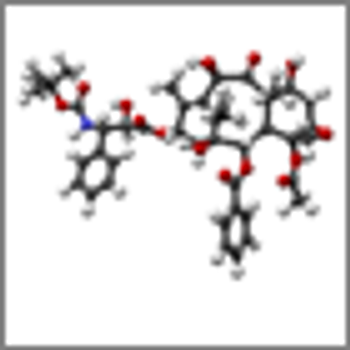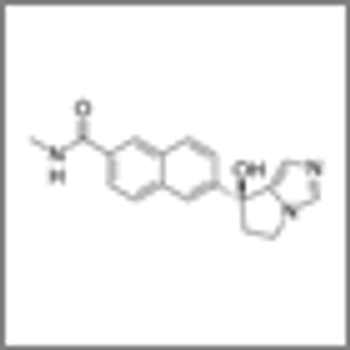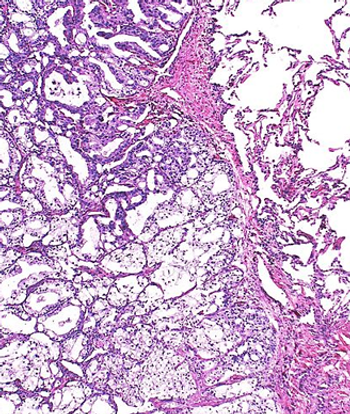
Individualizing first-line sunitinib was associated with improved response and survival times among patients with metastatic renal cell carcinoma.

Your AI-Trained Oncology Knowledge Connection!


Individualizing first-line sunitinib was associated with improved response and survival times among patients with metastatic renal cell carcinoma.

In this interview we discuss decision making in the treatment of metastatic renal cell carcinoma.

Abiraterone at the start of ADT for men with metastatic prostate cancer significantly improved overall survival and failure-free survival, with manageable toxicity.

Combined therapy with abiraterone acetate/prednisone plus ADT significantly improved overall survival and radiographic progression-free survival among men with metastatic hormone-naive prostate cancer.

In this interview ahead of ASCO 2017 we discuss the physical and cognitive effects of androgen deprivation therapy in older men treated for prostate cancer.

In this video we discuss the continuation of nivolumab after tumor progression in patients with advanced renal cell carcinoma in the CheckMate 025 trial.

Long-term follow-up of a phase I and a phase II study shows that nivolumab produces strong overall survival benefit in patients with advanced renal cell carcinoma.

Cabozantinib significantly improved the overall survival of patients with previously treated advanced RCC, according to the second interim analysis of the METEOR trial.

Experimental, minimally invasive “liquid biopsy” blood tests might soon help to personalize prostate cancer treatment by predicting androgen resistance and survival benefits from particular treatments.

Use of multiparametric MRI could allow a significant portion of men with elevated PSA levels to avoid undergoing a biopsy without missing clinically significant prostate cancers.

Adding carboplatin to cabazitaxel was safe and associated with improved PFS among men with aggressive variant castration-resistant prostate cancer.

A hypofractionated shorter course of radiotherapy was not inferior to a conventional regimen in men with localized prostate cancer.

Cabazitaxel at two different doses was no better than docetaxel with regard to OS or PFS in men with metastatic castration-resistant prostate cancer.

The addition of docetaxel to ADT offered decreased QOL at 3 months vs ADT alone, but better QOL at 12 months, in metastatic hormone-sensitive prostate cancer.

An intermittent docetaxel regimen was non-inferior to continuous docetaxel therapy in patients with metastatic castration-resistant prostate cancer.

In this interview ahead of the 2016 ASCO Annual Meeting we discuss some of the prostate cancer trials to watch out.

Men with prostate cancer assigned to intermittent ADT experienced more ischemic and thrombotic events than did men assigned to continuous ADT.

Assigning prostate cancer patients in relapse after prostatectomy to ADT and radiation therapy delayed disease progression compared to radiation therapy alone.

Researchers have identified a new histologic subset of metastatic castration-resistant prostate cancer that is refractory to androgen receptor inhibition.

Immediate ADT improved overall survival compared with delayed ADT in prostate cancer patients with a rising prostate-specific antigen level.

The addition of docetaxel and prednisone to standard therapy may be the first effective adjuvant chemotherapy treatment for high-risk prostate cancer patients.

Ahead of the 2015 ASCO Annual Meeting, we are discussing the role of immunotherapy in genitourinary cancers with Susan F. Slovin, MD, PhD.

The STAMPEDE trial suggests that survival can be improved in metastatic prostate cancer patients with the addition of docetaxel to frontline hormonal therapy.

The investigational therapy orteronel delayed disease progression in patients with metastatic castration-resistant prostate cancer, but did not significantly improve overall survival.

An analysis of clinical trials suggests that the site of a prostate cancer patient’s metastases can predict survival following treatment with docetaxel.

A phase I trial that combined the investigational therapy cabozantinib with the already approved abiraterone acetate in metastatic castration-resistant prostate cancer patients shows that the two agents are tolerable, with the potential for improved efficacy.

Results from the phase III E3805 clinical trial show that adding docetaxel to standard hormone therapy extends survival for men with metastatic hormone-sensitive prostate cancer by 13.6 months.

Researchers have demonstrated the ability to detect AR-V7 in circulating tumor cells of prostate cancer patients with primary resistance to enzalutamide and abiraterone.

As part of our coverage of ASCO's Annual Meeting, we discuss the role of chemotherapy in prostate cancer, as well as study results on novel targeted approaches and agents in development for prostate cancer that will be presented at the meeting.

A large study shows that prostate cancer patients who had a PSA-based relapse could delay androgen deprivation therapy until symptoms presented, without affecting long-term survival.